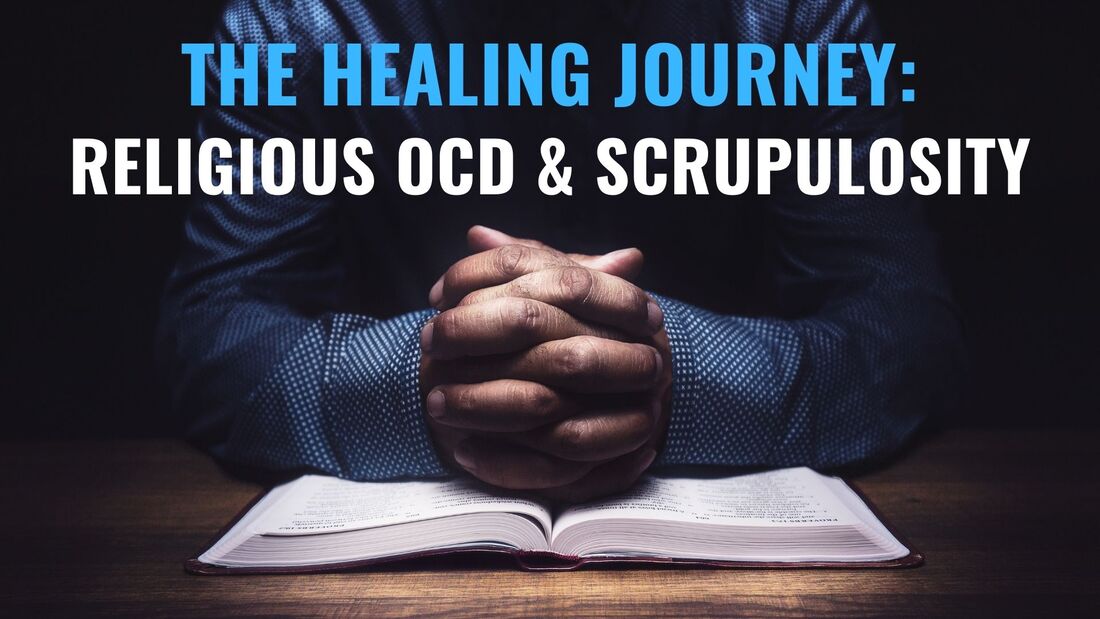|
Jaeger Counseling Blog
A Marriage & Pre-marital Counseling Individual & Family Therapy Resource |
|
As a licensed mental health counselor, one of the conditions that I regularly treat is obsessive-compulsive disorder (OCD). There are a number of subtypes of OCD. One that I regularly encounter especially from the faith community is called Scrupulosity. Scrupulosity is characterized by excessive concern and guilt over moral or religious matters and can have a significant impact on a person's daily life. Individuals with scrupulosity have an intense fear of committing moral or religious sins and constantly worry about their thoughts, actions, and intentions. They may engage in repetitive rituals or seek reassurance from others to alleviate their anxiety. Common fears include, “Have I committed the unpardonable sin”, “ Am I really saved”. I have had clients who have spent hours reciting specific scriptures and prayers and affirming certain beliefs over and over. This constant preoccupation with morality can lead to feelings of guilt, shame, and self-doubt. Understanding scrupulosity requires recognizing that it is not simply a matter of being overly religious or having a strong moral compass. It is a mental health condition that can cause significant distress and impairment in functioning. It is important to approach scrupulosity with empathy and support, rather than dismissing it as excessive religious devotion. Treatment for scrupulosity often involves a combination of therapy and at times medication. Cognitive-behavioral therapy (CBT) can help individuals challenge and modify their irrational beliefs. Exposure and response prevention (ERP) therapy, a specific form of CBT, can be particularly effective in treating scrupulosity by helping to break the patterns of behavior and rituals that are perpetuating the problem. Doing so diminishes and eliminates the intrusive obsessions that cause distress. Medication, such as selective serotonin reuptake inhibitors (SSRIs), may also be prescribed to help manage the anxiety and obsessive thoughts associated with scrupulosity. Many people however are significantly helped with therapy alone. It is important for individuals with scrupulosity to seek professional help from a mental health provider experienced in treating OCD and related disorders. Support from family, friends, and religious leaders can also be beneficial in understanding and managing scrupulosity, however it is important they have an understanding of the nature of the condition. Many well meaning religious leaders and family have offered well meaning direction that is counterproductive and may actually exacerbate the condition. It is important to approach scrupulosity with empathy and understanding, recognizing it as a mental health condition that requires appropriate treatment and support. In addiction to seeking a qualified mental health professional specializing in treating OCD using ERP, a good starting place can be found at scrupulosity.com. As the holiday season approaches, it's time to take a step back from our daily routines and immerse ourselves in the joy and warmth that this time of year brings. However, for many, the holiday season can also be a source of stress and anxiety. As a therapist, I understand the importance of mental health, especially during this time of year. So, I've decided to share some tips on how to maintain a healthy mind during the holidays.
1. Set Realistic Expectations: The holidays are often portrayed as a time of perfect happiness and family unity. However, this is not always the case. It's important to set realistic expectations for the holidays and understand that it's okay if everything doesn't go as planned. 2. Take Time for Yourself: Amidst the holiday hustle and bustle, don't forget to take some time for yourself. Whether it's reading a book, taking a walk, or simply sitting in silence, taking time to relax and reflect can greatly improve your mental health. 3. Stay Active: Physical activity is a great way to reduce stress and improve mood. Try to incorporate some form of physical activity into your daily routine, whether it's a morning jog, an afternoon walk, or an evening yoga session. 4. Stay Connected: The holidays can sometimes feel lonely, especially if you're unable to be with your loved ones. Make an effort to stay connected with your friends and family, whether it's through phone calls, video chats, or even handwritten letters. 5. Seek Help if Needed: If you're feeling overwhelmed by holiday stress or depression, don't hesitate to seek help. Reach out to a mental health professional who can provide you with the support and guidance you need. Remember, the holiday season is a time for joy and relaxation, not stress and anxiety. By following these tips, you can ensure that your mental health remains a priority during this festive season. |
Norman Jaeger
|


 RSS Feed
RSS Feed